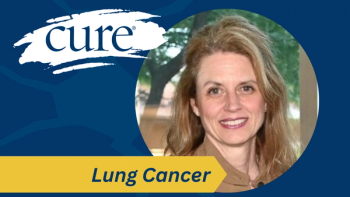
Are There Max Coverage Limits on Emotional Support Plans?
Don't end up alone lying in the hospital surround by the smells of disinfectant.
Being in the ICU alone can really suck, trust me. Lying in a bed that never seems to get warm enough, often groggy and surrounded by the smells of disinfectant — with a brain that is overactive and inundated with questions and worry – is an experience you want to avoid.
Usually, the ICU hasn't been a solo event for me, but there have been the few exceptions.
Last year, after a terrifying incident, caused by years of cancer treatment from long ago, I ended up in the ER. Once stabilized in the emergency room, I went straight to the ICU - alone. It wasn't the first time. Unlike other stays however, this stay was much shorter, three days. Not too bad when I considered what all went down.
While lying in the hospital by myself, I often thought about what it would actually be like to have to take on cancer alone. It wasn't the first time this thought had crossed my mind. It's a scary thought. It's also reality for some, unfortunately.
Over time, I've thought of three ways to lower the chances of ending up alone in a cancer-related crisis - a time that almost certainly requires the support of others. Coping with cancer can be very hard, but I would imagine it's remarkably hard going at it all alone.
Don't Isolate Yourself
I'd say most people know someone that they could call on for help during a crisis, but as life happens, sometimes we end up in situations where we are less connected than we were before. Moving to another city or losing friends and loved ones are some of the things that can lead to people ending up in situations where they aren't as in touch as they used to be. It also might be that people don't have the time, energy or mindset to engage with others like they once did. Long-term, this could be detrimental to a person's well-being in a time of crisis, i.e. cancer. So, whatever you do, make an effort not to isolate yourself. Meet people, make friends, get out of your comfort zone - connect! Hopefully, some of the people you connect with will also be the people who can support you should you ever have health issues.
Give a Little
For the people that you are connected with — the people who you would look to for support during a crisis, like a cancer diagnosis – remember it's a two-way street. This is kind of "friendship 101," but always be willing to support those supporting you. This type of thing will solidify friendships and strengthen bonds. Personally, I want to be good to people simply because I feel like it's the right thing to do, not just in the event I may need them some day.
Reach Out
Proactively get involved with others who need help. This is just good for you in my opinion. It makes you feel good, and in my experience, has helped keep me grounded and has shown me life for what it really is: fragile. There are Meetup groups, volunteer groups, church programs and other organizations that give people the opportunity to help those who need it. Even if getting involved seems to be something that would put you out of your comfort zone, do it anyway. Build relationships now, not later.
Investing in your emotional support plan may be the most important and rewarding insurance policy available to you. Everything you pay into the plan comes back to you - coverage is often for life and there are no maximum coverage limits.




